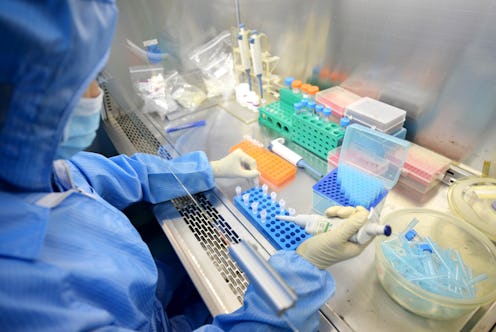News
The U.S. Ebola Case Just Got a Whole Lot Scarier
Yes, we know that there are several reasons not to panic about the first U.S. case of Ebola. Aside from the fact that there are many comforting protocols in place to isolate and treat the illness, Eblola isn't in fact very contagious. Still, you have to admit that it's unnerving when Texas health officials reveal that the number of people in contact with Ebola patient Thomas Eric Duncan has jumped from five to...80. Worse? The experimental treatment drug, ZMapp, has run out.
Early Thursday, Texas officials told NBC that as many as 80 — yes, that's eight zero — people may have been exposed to the virus after coming into contact with Duncan. To begin with, it was thought that only five children had been put at risk; that number then increased to 18. Now, 80 are currently in the process of being interviewed for signs of the illness.
Duncan — a Liberian — is of course the first person to have been diagnosed with the terrifying virus in the United States. He's currently in the isolation unit at the Texas Health Presbyterian Hospital Dallas, while four members of his family have been ordered to stay home for the next few days, just as a precautionary measure.
Said Dr. David Lakey, Texas health commissioner, in a statement:
We have tried and true protocols to protect the public and stop the spread of this disease.This order gives us the ability to monitor the situation in the most meticulous way.
Making the situation scarier is the fact that Duncan won't be getting any ZMapp, the experimental wonder drug that's been used with the other two Americans who were diagnosed with — and subsequently recovered from — Ebola. Why? Because the manufacturer's stocks have literally run out. According to the Guardian, there were only limited doses available to begin with, and the medicine is complex to make (the process apparently involves growing three different types of antibodies on tobacco leaves).
Before we all panic, though, it's important to remember that Ebola is very unlikely to have the same mass deadly effect here in America as it did in West Africa. For one thing, both health treatments and equipment are more advanced here, meaning that the virus will be much easier to contain and cure. And let's not forget that the disease only spreads if you come into contact with an infected person's body fluids, which probably isn't something you're likely to do.
Images: Getty Images (2)
